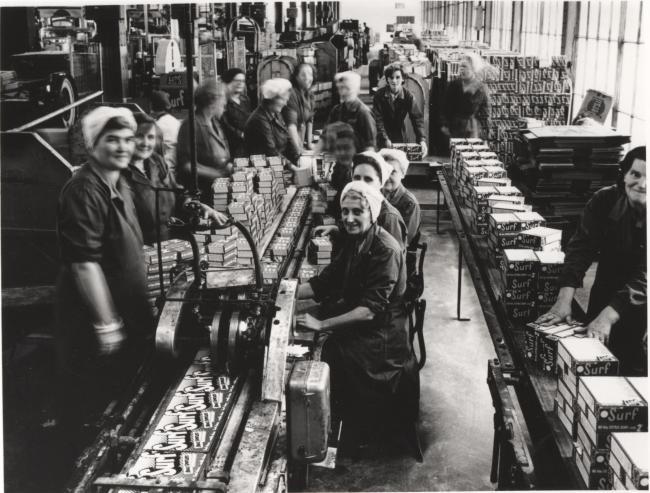Emotions at work

My doctoral research examines the interaction between emotional and management regimes in the British workplace from around 1930 to 1970. In this period, managers and personnel directors began to use the new science of psychology as a tool to manage the emotions of their staff. This was to maintain workers’ mental wellbeing and thus ensure labour force productivity. I see myself as a historian of the emotions at work. In my research, I ask what emotions workers were encouraged to display or suppress, as well as how management styles shaped their emotional experience of work.
This was a period of great change in the workforce. The twentieth century saw two wars requiring mobilisation on an unprecedented scale. White collar jobs slowly opened up for women, and married women’s employment went from being a rarity to commonplace by the end of the period in question. The post-war years also saw significant numbers of Commonwealth and Irish immigrants enter the labour force. My research is concerned with how this more diverse workforce was managed, and what the emotional experience of these changes was.
I became interested in the connection between workplace management and emotion after noticing that mental health and wellbeing initiatives have become common across workplaces in recent years. These initiatives are often presented as novel and enlightened, juxtaposed against an older, unemotional workplace culture in which discussion of feelings was taboo. I wondered how fair that picture of work in the twentieth century was. Were there also earlier attempts to assess, understand and influence workers’ emotions? Was there acknowledgement that work was full of emotional strains and stresses? In other words, I ask what the emotional culture of work in the past was.
In the course of my research I found that recruitment was one location in which concerns about mental health at work gathered. Corporations employed psychiatrists as advisors on ‘scientific’ selection; they deployed their expertise to ensure that successful candidates were temperamentally and cognitively suited for the role. If not, the psychiatrists warned, job dissatisfaction could even lead to mental breakdown. However, these seemingly innocuous selection schemes had a difficult history. Personality and intelligence tests used by firms started life as diagnostic tools in psychiatric institutions and were designed to identify those with intellectual disabilities or severe mental health problems. They therefore partook in a knowledge regime which understood human capacity along hierarchical lines, enabling the classification and stigmatisation of such individuals as ‘deficient’ and ‘dull’.
This research therefore stretches further than the traditional sites and subjects of labour history. I am studying a wide range of industries, from manufacturing to banking to transport. Furthermore, my research often examines managers; I ask what emotional role they were expected to undertake in order to lead and manage their staff. However, I also engage with the trade union movement. I am particularly curious about the unions’ role in, and response to, the new tools and technologies of management rolled out in post-war corporations. I am also interested in how the management of workers’ feelings played out in the sphere of industrial relations: were ‘hot-headed’ strikers somehow seen as out of step with accepted emotional norms at work? My research therefore aims to place labour history in dialogue with the history of emotions, underscoring how labour relations were suffused with feeling.
Grace Whorrall-Campbell
